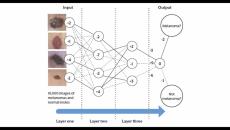AI & ML Intelligence
SPONSORED
AI & ML Intelligence
These networks started impacting healthcare in the last 20 years, but it's only today that reliable prospective studies are convincing clinicians to use these artificial intelligence tools in their daily work. A Mayo Clinic researcher offers some insights into their applications and use.



